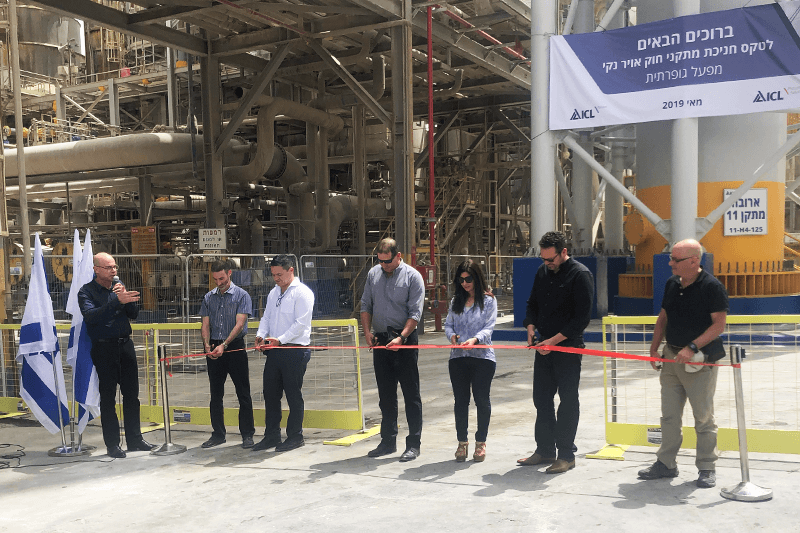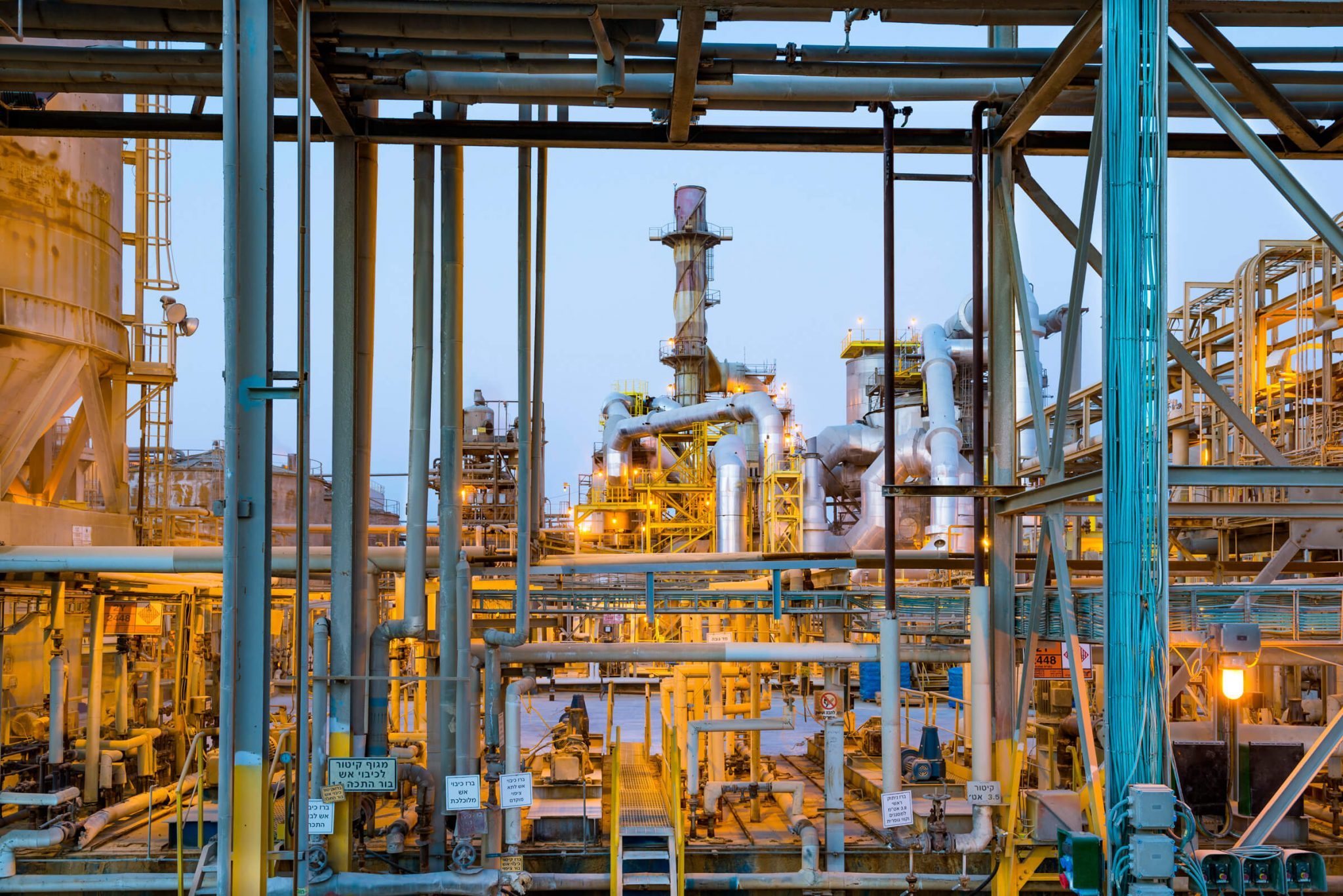Clean Air Law
The aim of Israel’s Clean Air Law is to improve air quality, to prevent and reduce air pollution by implementing both prohibitions and obligations according to the precautionary principle, to protect the health and quality of life of human beings, as well as to protect the environment. The Clean Air Law addresses emission sources (including ICL’s plants and facilities), and it is intended to serve as a platform for implementing the IPPC directive adopted by the European Union in 1996.
All of ICL’s plants in Israel have received updated air emission permits in recent years.

All of ICL’s plants in Israel have received updated air emission permits in recent years. These permits include provisions regarding the application of BAT (Best Available Technology), as well as monitoring, control and reporting to Israel’s Ministry of Environmental Protection. ICL is also taking steps to implement a plan to address the requirements of the air emission permits, in coordination with the Ministry of Environmental Protection.
In 2018, ICL has invested approx. $32 million in new equipment and upgrades in Israeli production sites, to comply with the requirements of the clean air law.
ICL is investing in order to reduce its impact on the environment. In 2018, ICL spent approximately $121 million on environmental matters, of which approximately $32 million were CAPEX investments in new emission reduction equipment and installation upgrades in Israeli production sites, designated primarily to comply with the requirements of the clean air law and reduce various emissions. In order to comply with the Israeli Clean Air Law and the emission permits, over the next few years ICL will continue to make significant capital investments in the areas of environmental protection. The Company estimates that in 2019, it will spend approximately $64million on capital projects in property, plant and equipment, designated to comply with the law and reduce emissions in Israel.
ICL has made significant investments, to comply with emission permits. As a result, SOx and NOx emissions have already been reduced by 25% and 20% respectively in 2018. further reduction are expected in the upcoming years.
Reducing Air Emission at ICL’s Sites in Israel
ICL Rotem
By December 2018, the ICL Rotem has completed 50 of the 180 specific tasks required by the Clean Air permit. During 2018, the sulphuric acid plant replaced and upgraded a catalyst system in order to reduce specific emissions by more than 30%, causing a 25% decrease in overall ICL global SOx emissions in 2018.
In Rotem, on-fence monitoring systems have been installed.
These report on-line parameters to the environmental authorities.
ICL Haifa Fertilizers & Chemicals (F&C)
ICL’s Haifa (F&C) was converted to natural gas during 2018. This is conducted as part of ICL’s strategic transition to natural gas in all Israeli sites.
ICL Dead Sea Works (DSW)
ICL DSW operates three air quality monitoring stations, pursuant to the Clean Air Law. The data, which is continuously measured, is automatically sent to the Internet site of the National Monitoring Center of the Ministry of Environmental Protection, which is accessible to the general public. The main production facilities of Dead Sea Works in Sdom have been fully converted to natural gas and are connected to the national gas transport network.
During the third quarter of 2018, the new NG-based and highly efficient CHP (combined heat and power) plant in Sdom became fully operational. The plant now supplies the grand majority of electricity to all ICL Israel sites. The high efficiency of the new plant was the main reason for the 20% decrease in ICL’s global NOx emissions in 2018 (despite the significant increase in natural gas combustion in the new plant, with the switch to self-produced electricity).
ICL Dead Sea Magnesium (DSM)
In the ICL DSM, new detectors were installed. These send online computerized warnings to the environmental authorities.
ICL Neot-Hovav
ICL Noat Hovav operates advanced monitoring and detection methods to identify malfunctions in its different facilities. In this matter, before a malfunction occurs, the facility’s manufacturing activities are halted, and steps are taken to minimize uncontrolled emissions according to the laws and the conditions set out in the site’s business license, its poisons permit, and its emissions permit. In addition, integrated pollution prevention and control (IPPC) methodologies are also applied, which provide guidance regarding all of the techniques for preventing and monitoring emissions into the environment. The main actions taken are:
- Investments in the production facilities to improve recycling and recovery of solvents and other organic materials emitted into the air via activated charcoal systems, in order to achieve reduction of the amount of these materials emitted into the air;
- Investments in catalytic oxidizing technologies that reduce volatile organic compound emissions and comply with advanced values in accordance with the BAT (Best Available Technique);
- Investments in upgrading of absorption systems in the inorganic systems;
- Investments in upgrading of filters to prevent emissions of particles from the solids’ handling systems;
- Sealing of diffused emissions in the loading and unloading areas;
- Ongoing work (with Europen experts) to upgrade the LDAR (Leak Detection and Repair) program – control and treatment of fugitive emissions.
ICL Periclase
During 2018, Periclase installed an air emissions treatment facility for the Magnesia manufacturing process.
The reduction of air emissions is a worldwide effort. To read more about ICL’s actions regarding the Clean Air Law in Israel as well as the applicable laws that are in effect at ICL’s other sites please see pp. 90-93 in ICL’s 2018 Annual Report.


